Indian Polity and Governance : April 2025 UPSC Current Affairs | Indian Polity for UPSC CSE PDF Download
Supreme Court Mandates Timeline for Presidential Action on State Bills
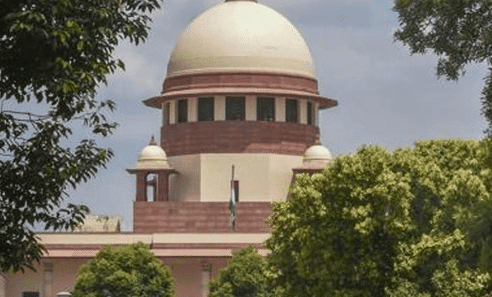
Why in News?
In a landmark decision, the Supreme Court of India has established a timeline for the President to act on state legislature Bills reserved by Governors. This ruling, delivered on April 8, 2025, aims to clarify a constitutional ambiguity regarding Article 201, which has historically led to delays in legislative processes and strained relations between State governments and the Centre.
Key Takeaways
- The Supreme Court has mandated that the President must act on reserved Bills within three months.
- If the deadline is not met, the Centre is required to provide reasons for the delay to the respective State.
- This ruling reinforces the accountability of constitutional authorities and enhances the autonomy of State Assemblies.
Additional Details
- Article 201: This provision allows a Governor to reserve a Bill passed by a State Legislature for the President's consideration; however, it does not specify a timeframe for action.
- This ruling addresses the issue of prolonged delays that previously resulted in political tensions and legal disputes between State and Central authorities.
- The Court highlighted that constitutional roles should be executed within a 'reasonable time' to uphold democratic integrity.
- The decision is based on past recommendations, including those from the Sarkaria Commission and the Punchhi Commission, which advocated for defined timelines in legislative processes.
In conclusion, the Supreme Court's ruling represents a significant advancement in India's constitutional framework, ensuring timely governance, preserving legislative sovereignty, and fostering a more efficient federal structure.
Supreme Court’s Article 201 Ruling FAQs
- What is Article 201 of the Indian Constitution? Article 201 empowers the Governor to reserve a Bill passed by a State Legislature for the President's consideration.
- What did the Supreme Court rule regarding Article 201 in April 2025? The Court ruled that the President must act within three months on any Bill reserved under Article 201.
- What happens if the President delays action beyond three months? The Centre must provide reasons for the delay to the concerned State.
- Why is this judgment significant for federalism? It ensures timely legislative action and strengthens State autonomy within India’s federal framework.
- Can the President withhold assent without giving reasons? No. The President’s decision to withhold assent must be based on clear, documented reasons.
Custodial Torture and Need for Police Reforms
A report by Common Cause and the Lokniti Programme has highlighted the widespread issue of police violence in India, indicating deep-rooted systemic problems that contribute to custodial torture. The survey, which involved 8,276 police personnel across 17 states and Union Territories, points to fundamental issues within law enforcement agencies.
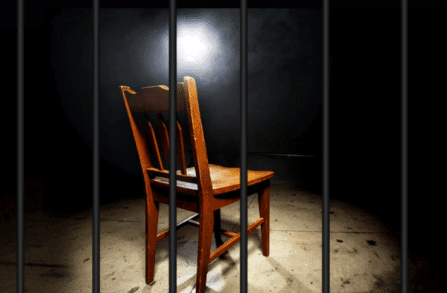
About Custodial Torture
- Definition of Torture: According to the UN Convention (1984), torture refers to the deliberate infliction of severe physical or mental suffering on an individual. This practice is often employed to elicit confessions, punish, intimidate, or discriminate against individuals and is carried out or sanctioned by authorities in positions of power.
- Legal Framework: Custodial torture is regulated by the Bharatiya Nagarik Suraksha Sanhita (BNSS), 2023. This legislation outlines the guidelines for detaining individuals during investigations, aiming to strike a balance between individual rights and effective law enforcement.
Key Provisions Under BNSS
- Timeframe of Police Custody (Section 187(2) of BNSS): Police custody can now extend up to 15 days, but not necessarily continuous.
- Judicial Safeguards: Police must still present the accused before a magistrate. A magistrate must approve police custody beyond 24 hours of arrest, ensuring legal safeguards against arbitrary detention.
- Extension of Detention Beyond 15 Days: Similar to CrPC, Magisterial (Judicial) custody beyond 15 days can continue up to: 60 days for offences punishable up to 10 years. 90 days for offences punishable by death/life/≥10 years. But police custody remains capped at 15 days, albeit flexibly spaced under BNSS.
Why Police Torture Persists in India?
- Legal Vacuum on Torture: India has signed but not ratified the UN Convention Against Torture (UNCAT), 1997, meaning it is not legally bound to implement its provisions. The Prevention of Torture Bill (2010) lapsed in Parliament, and subsequent efforts to introduce legislation have been shelved or diluted.
- Procedural Flaws and Delays: The Supreme Court of India, in K Basu vs. State of West Bengal (1997) Case, laid down crucial guidelines to prevent custodial abuse. However, courts often rely on magisterial inquiries, which are plagued by procedural flaws and delays.
- Institutional Incentives: Confessions obtained through violence are still considered evidence, despite being inadmissible under Section 25 of the Indian Evidence Act.
- Weak Accountability: Investigations into custodial deaths are usually conducted by the same department involved in the incident. Even judicial inquiries are often slow, opaque, and inconclusive.
- Political Interference: Policing in India is frequently influenced by political pressures, undermining impartial action and protecting errant officers.
Key Findings of Report
- Justified Use of Police Force: 55% of police personnel believe ‘tough methods’ are necessary to instill fear in the public. 30% justify third-degree torture in serious cases, while 9% approve of it even for petty offenses.
- Mob Violence and Encounters: 25% of police personnel support mob violence in cases like sexual harassment and child lifting. 22% believe encounter killings are better than legal trials, though 74% support legal procedures for dangerous criminals.
- Arrest Procedures: 41% claim procedures are always followed, while 24% admit they are rarely or never adhered to. Kerala reports the highest compliance (94%), while Jharkhand reports the lowest (8%).
- Victim Demographics: Victims of police torture predominantly belong to marginalized groups, including Dalits, Adivasis, Muslims, and slum dwellers.
- Judicial and Medical Apathy: Magistrates often act as ‘silent spectators’ and medical examinations are conducted by doctors without forensic expertise.
- Custodial Deaths and Accountability: Discrepancies in official figures highlight the underreporting of custodial deaths, with numbers ranging from 76 (NCRB) to 111 (NCAT) cases in 2020. Between 2018 and 2022, zero convictions were recorded for custodial deaths, raising concerns about impunity.
Recommendations for Reform
- Enact Comprehensive Anti-Torture Legislation: India must pass a dedicated law against custodial torture with strict provisions for accountability, time-bound investigations, and victim compensation.
- Strengthen Police Training: 79% of police personnel support human rights training.
- Independent Oversight Mechanisms: Establish monitoring bodies to ensure transparency and accountability.
- 69th Report (1977) of Law Commission of India: It proposed introducing Section 26A in the Indian Evidence Act to make confessions before senior police officers admissible.
- 273rd Report of Law Commission of India: It recommended an anti-torture law, affirming that India’s existing legal safeguards are insufficient.
- Malimath Committee: It suggested that confessions made before a senior police officer of the rank of Superintendent or above should be admissible in evidence with safeguards to prevent coercion.
- Mandatory Use of Technology: CCTV coverage in interrogation rooms, digital records of questioning, and body cameras must become the norm.
- Capacity Building & Sensitization: Police training must emphasize human rights, ethical investigation techniques, and the psychological impacts of torture.
- Judicial Reforms: Fast-track courts for custodial crimes, along with stringent penalties for complicit officials, are essential.
Conclusion: Custodial torture is a deeply ingrained problem in India's justice system that requires immediate legal and institutional reforms. By ratifying the UN Convention Against Torture, implementing stricter accountability measures, and changing the culture of policing, India can move towards a more humane and rights-based approach to law enforcement.
SC Verdict on Governors’ Powers over State Bills
The Supreme Court of India's recent judgment has significantly impacted the concept of federalism in the country, particularly concerning the powers of state Governors. This 414-page ruling addressed the discretionary powers of Governors and established important precedents that could reshape the relationship between state governments and the central authority.
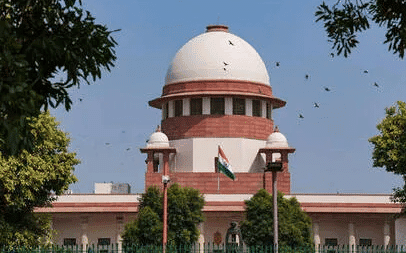
Key Precedents Set by the Supreme Court
- Time Limit for Assent: The Court ruled that there should be a limit on the time within which the President or Governor must assent to a bill.
- Assent on Non-Money Bills: It was determined that neither the President nor the Governor can withhold assent from non-money bills.
- Reassessed Bills: Bills that have been reassessed by the state assembly can be considered as passed by the Governor.
Content of the Bills
The judgment revolved around ten contentious bills that highlighted a power struggle between the Tamil Nadu state government and its Governor. These bills aimed to transfer control over state universities from the Governor to the state government, particularly regarding the appointment of vice-chancellors. This move was intended to reduce political influence over educational institutions in the state.
Judicial Interpretation and Legal Repercussions
- Bench Composition: The Supreme Court's decision, typically requiring a five-judge Bench for constitutional questions, was made by a two-judge Bench using extraordinary powers under Article 142.
- Article 200 Interpretation: The interpretation of Article 200 by the Bench raised questions about the traditional roles of legislative and executive bodies in the bill-passing process.
- Legislative Process: The Court's involvement in the legislative process was questioned, as the Constitution outlines the roles of the state assembly, Governor, and President in bill passing, without provision for Supreme Court intervention.
Concerns and Recommendations
- Arbitrary Elements: The judgment introduced arbitrary elements, such as a fixed period for Governor's actions, which contradicted recommendations by commissions like the Sarkaria and Punchhi Commissions.
- Governor's Independence: The Court's mandate requiring the Governor to act on Ministerial advice was seen as contradicting Article 163, which allows the Governor to act independently.
- Separation of Powers: Concerns were raised about the Court's overreach into the executive domain, potentially disrupting the separation of powers, especially regarding mandates extending to the President's office.
The Way Forward
In response to these concerns, it is suggested that the Governor of Tamil Nadu file a curative petition with the Supreme Court. This petition aims to restore constitutional balance and uphold the dignity of the President's office, ensuring that the separation of powers and the roles of different constitutional authorities are respected.
Protection of Interests in Aircraft Objects Bill, 2025
 Why in News?
Why in News?
The Rajya Sabha has recently approved the Protection of Interests in Aircraft Objects Bill, 2025. This legislation aims to integrate international conventions regarding the leasing of aviation equipment into Indian law.
Key Takeaways
- The bill seeks to implement the Convention on International Interests in Mobile Equipment, also known as the Cape Town Convention of 2001.
- India became a signatory to these international agreements in 2008.
- It aims to protect the rights associated with high-value mobile assets, including aircraft and engines.
- The bill designates the Directorate General of Civil Aviation (DGCA) as the registry authority for these assets.
Additional Details
- Purpose of the Bill: The bill is designed to bring clarity and uniformity to the legal framework governing aviation leasing, ensuring that creditors and stakeholders are protected under defined guidelines.
- Key Provisions: Creditors must notify the DGCA before taking any actions in the event of a default. In case of default, they can recover aviation assets such as aircraft or engines within two months or another mutually agreed timeframe.
- The legislation aims to enhance security and clarity for the leasing industry.
This bill is expected to be a significant step forward in providing legal certainty and support for the aviation leasing sector in India, aligning it with international standards.
Waqf (Amendment) Act, 2025
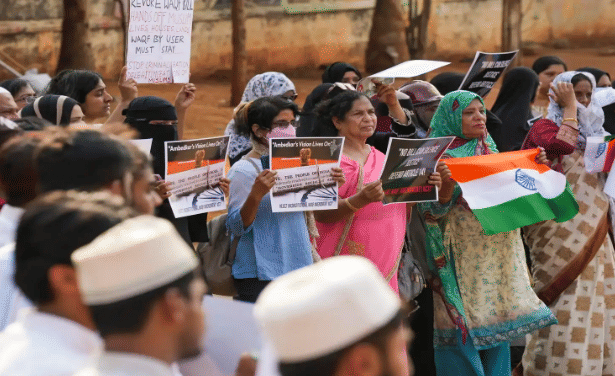
Introduction
- The Waqf Amendment Act 2025, also known as the UMEED Act, was passed by the Parliament in April 2025. It aims to bring about significant changes in the governance and management of Waqf properties in India.
- The Act seeks to amend the Waqf Act of 1995, focusing on improving transparency, accountability, and efficiency in the administration of Waqf properties while addressing long-standing issues within the system.
- Waqf properties are those donated by Muslims for specific religious, charitable, or private purposes, with ownership considered to belong to God.
- The Waqf Amendment Act 2025 proposes several key changes, including the inclusion of non-Muslim members in Waqf boards, the removal of the 'Waqf by user' provision, and the establishment of a legal separation between trusts and Waqfs.
- The Act also aims to protect inheritance rights, safeguard tribal lands, and enhance transparency in the management of Waqf properties.
What is a Waqf Property?
- A Waqf property refers to a piece of land or asset donated by Muslims for a specific religious, charitable, or private purpose. In a Waqf, the ownership of the property is considered to belong to God, while the benefits derived from it are directed towards the specified purposes.
- Establishment: A Waqf can be established through a written deed, legal instrument, or even orally. It is recognized when a property has been used for religious or charitable purposes over an extended period.
- Irrevocability: Once a property is designated as a Waqf, it cannot be reclaimed or altered by the donor.
However, it's important to note that not all Islamic countries have Waqf properties. Countries like Turkey, Libya, Egypt, Sudan, Lebanon, Syria, Jordan, Tunisia, and Iraq do not have Waqfs. In contrast, India has Waqf Boards that are the largest urban landowners, with legal protection under an Act.
Waqf Boards in India
- In India, Waqf Boards oversee approximately 8.7 lakh properties covering around 9.4 lakh acres of land, with an estimated worth of ₹1.2 lakh crore.
- Waqf Board is the largest landowner in India after the Armed Forces and the Indian Railways.
Origin of the Concept of Waqf
- The concept of Waqf has been present in India since the early days of the Delhi Sultanate. Sultan Muizuddin Sam Ghaor dedicated two villages to Multan’s Jama Masjid and appointed Shaikhul Islam as its administrator.
- British Raj Controversy: In the late 19th century, the Privy Council criticised Waqf as “perpetuity of the worst kind” and declared it invalid. However, the Mussalman Waqf Validating Act of 1913 upheld the Waqf system in India, despite British criticism.
- Waqf Act, 1954: After independence, the Waqf Act of 1954 was introduced to regulate and manage Waqf properties across India. It established the Central Waqf Council of India (established in 1964 as a statutory body) to oversee the work under various state Waqf boards, established under provisions of Section 9(1) of the Waqf Act, 1954.
- Waqf Act, 1995: The Waqf Act of 1995 was introduced to strengthen the management and regulation of Waqf properties (religious endowments) in India. This legislation granted overriding authority over other property laws, ensuring that Waqf assets were administered primarily under Islamic law while enhancing protections against encroachments and mismanagement.
Waqf Act 1995
- The Waqf Act, enacted in 1995, governs the management and administration of Waqf properties in India, which are properties dedicated for religious, charitable, or pious purposes under Islamic law. The Act mandates the establishment of Waqf Boards at the state level to oversee these properties. Following are the Key Provisions of the Waqf Act, 1995:
- Role of Waqf Bodies: The Act outlines the roles and responsibilities of the Waqf Council, State Waqf Boards, and the Chief Executive Officer, along with the duties of a Mutawalli (caretaker of Waqf properties).
- Waqf Tribunals: It also defines the authority and limitations of Waqf Tribunals, which function as substitutes for civil courts within their jurisdiction.
- Power of Civil Court: These tribunals hold the same powers and responsibilities as civil courts under the Code of Civil Procedure, 1908.
- Binding Power: Additionally, their decisions are final and binding, and no civil court is permitted to entertain lawsuits or legal disputes related to matters under the tribunal’s purview.
Concerns of Gorkha Community
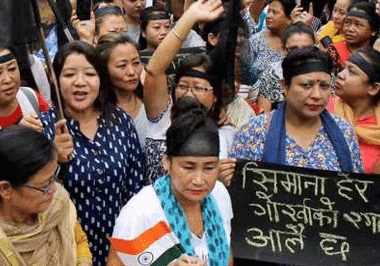
Why in News?
The Ministry of Home Affairs (MHA) convened a meeting in New Delhi with key representatives of the Gorkha community, aimed at addressing their long-pending concerns.
Key Takeaways
- The Gorkha community, also known as Gurkhas, is a martial group originating from Nepal.
- Their demands include a separate state of Gorkhaland and recognition of their ethnic identity.
- They seek Scheduled Tribe (ST) status for several of their communities.
- Concerns have been raised regarding the Agnipath scheme and geopolitical tensions with China.
Additional Details
- Who are the Gorkhas? The Gorkhas are a diverse martial community from Nepal, known for their bravery and loyalty, originating from the Gorkha Kingdom.
- Ethnic Diversity: The Gorkhas represent various ethnic groups including Gurungs, Magars, Rais, and Limbus.
- Historical Significance: After the Anglo-Nepal War (1814-1816), the British Army recruited Gorkhas, who have since served in both British and Indian armies.
- Demand for Gorkhaland: Since the 1980s, there has been a push for a separate state encompassing Darjeeling, Terai, and Dooars to gain political recognition and autonomy.
- Scheduled Tribe (ST) Status: Gorkha communities like Rai, Limbu, and Gurung have sought ST status to access social justice and educational benefits, though progress has been slow.
- Agnipath Scheme Concerns: The new scheme has raised fears of job insecurity, especially among Nepali Gorkhas, as it offers limited service duration without guaranteed pension.
- Geopolitical Tensions: Reports indicate potential interest from China in recruiting Gorkhas, complicating diplomatic relations between India and Nepal.
The ongoing discussions reflect the Gorkha community's aspirations for recognition and empowerment within India, highlighting the need for constructive dialogue to address their concerns.
Supreme Court Ruling on Anti-Defection Pleas
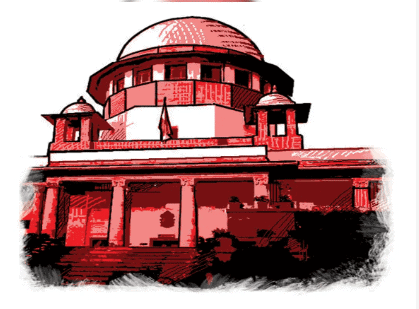
Why in News?
The Supreme Court (SC) has clarified that it possesses the authority to intervene when a Speaker delays decisions on anti-defection pleas. A Bench led by Justice B.R. Gavai stated that indecision by a Speaker cannot be used to undermine the provisions of the Tenth Schedule of the Constitution. This ruling arose from petitions filed by leaders of the Bharat Rashtra Samithi (BRS) concerning disqualification proceedings against defecting MLAs in Telangana.
Key Takeaways
- The SC affirmed that it can direct Speakers to make decisions within a reasonable time frame.
- If a Speaker neglects SC directions, the court can invoke Article 142 to enforce compliance.
Additional Details
- About Anti-Defection Law (ADL): The ADL was enacted as a response to the political instability caused by multiple state governments being toppled by MLAs changing parties, notably illustrated by the phrase 'Aaya Ram Gaya Ram,' which originated from a Haryana MLA’s party-switching in 1967. It was introduced through the 52nd Constitutional Amendment Act in 1985.
- The ADL aims to maintain political stability by disqualifying legislators who defect from their parties. The 91st Amendment Act in 2003 removed exemptions for party splits.
- Grounds for Disqualification: Legislators may face disqualification for reasons such as voluntarily resigning from their party, voting contrary to party directives without permission, or independent members joining a party after elections.
- Speaker's Role Under ADL: The Speaker of the Lok Sabha (LS) or Chairperson of the Rajya Sabha (RS) is responsible for deciding disqualification cases, but there is no mandated timeline for these decisions, often leading to delays.
- In the landmark case of Kihoto Hollohan v. Zachillhu (1993), the SC ruled that decisions made by the Speaker are subject to judicial review.
The Supreme Court has previously suggested reforms, including setting a three-month timeline for decision-making in disqualification cases and allowing appeals to the Supreme Court for expedited resolutions.
Challenges and Recommendations
- Implementation Challenges: Delays in the Speaker's decisions diminish the law's efficacy, while political bias may influence outcomes due to the Speaker's affiliation with a party.
- Suggested Reforms: A fixed decision timeline of four weeks should be implemented, alongside clearer guidelines for party whips and enhanced accountability for the Speaker.
- International practices regarding anti-defection laws vary, with countries like the USA lacking formal laws while others like South Africa have constitutional measures against party-switching.
In conclusion, the Supreme Court's ruling not only upholds the integrity of the Anti-Defection Law but also highlights the need for timely and impartial decision-making processes in disqualification cases to ensure political stability and accountability.
|
154 videos|993 docs|260 tests
|

















